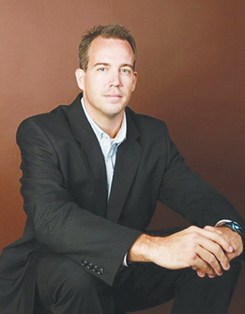Fear the Customer, Not the Competition (OPINION)
by December 7, 2015 12:00 am 320 views

Recently, I watched a presentation given in 1999 by Jeff Bezos, founder and CEO of Amazon, at the Association of American Publishers Annual Meeting in Washington, D.C. Among the insights he shared that would shape, if not perfectly foretell, the next 16 years at Amazon, one in particular stood out to me: Pay attention to your competition, of course. But fear the customer.
In the words of Bezos: “We should be afraid of our customers. They’re loyal to us right up to the second that someone offers them better service … and that has been our mantra. We’re trying very hard to be a customer-focused company and not a competitor-focused company.”
I think we as human beings are naturally competitive. Some of us more than others. Some of us border on the ridiculous in our competitive extremes. I once worked for a guy who would pick out a person in the parking lot when he arrived at the Walmart home office each day, and race him to the door. Of course, his opponent had no idea that the two of them were racing. Nonetheless, starting each day with that small victory was an important part of his routine.
I think back on my own career and how many times we focused on things not necessarily because the customer was asking us to, but because we perceived the risk of a competitor exploiting our weakness in one area or another and thought we should react.
In the past decade, we’ve watched retailers acting with near neuroticism, bouncing around from a focus on big stores, to a focus on small. A focus on opening price point goods, back to a focus on higher-end stores. A focus on improving operating metrics such as perceived checkout speed, store cleanliness, and in-stock — all compared to those at key competitors.
All the while, shoppers have been embracing with great enthusiasm the tremendous power bestowed upon them by their new best friend, the smartphone.
In an article I wrote back in 2012 called “The Age of the Customer — Making Your Move as Power Shifts … Again,” I wrote:
“I think we really believed that there had been a couple of customer-alienating (aka boneheaded) missteps which just so happened to coincide with the front side of what would turn out to be a really nasty economic downturn. Once the economy returned to normal, the customer would find her stores just as she remembered them and … things would all be OK. Right?
“The problem, of course, is that in her relentless pursuit of value in order to preserve some small part of the good life she and her family had enjoyed during better times, our customer went and got smart. No, wicked smart. And then, she turned on us.”
And now, with brick-and-mortar retailers scrambling to save their business from Amazon, more and more shoppers are deciding to sit out “door busting” sales at their once favorite stores and opting instead to stay home and shop for those same great deals online.
And what should scare us even more, according to a recent study by BrandShop, is that nearly 90 percent of consumers say they would purchase directly from consumer product companies and cut out the retailer altogether, if only they could.
I have been as guilty as anyone over the past several years of getting worked up any time anything that even looked like a new competitor arrived on the scene. And every time I did, I became distracted. The whole organization became distracted, and the business suffered for it.
Customers are always ready to tell us exactly what they want. All we have to do is ask them and be willing to listen to the answer.
They always get their way.
Matt Fifer is the founder and CEO of Selling to the Masses, a Bentonville-based company that helps consumer product innovators get on the shelves of the country’s top retailers. Prior to founding his first business (Store of the Community) in 2005, his second (8th & Walton) in 2006 and his third (Selling to the Masses) in 2012, Matt spent 13 years serving in a variety of key leadership roles in the areas of operations, marketing, human resources and in mergers and acquisitions while working both in the U.S. and abroad for Wal-Mart Stores Inc.
